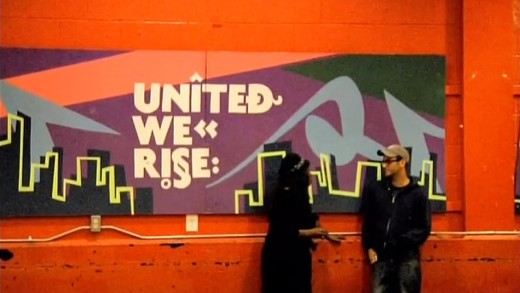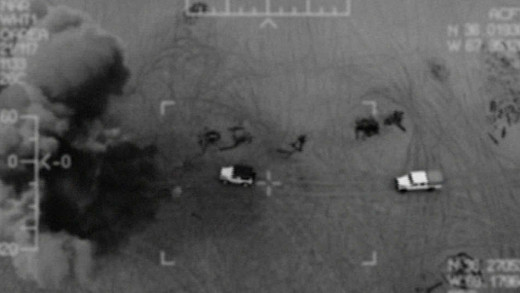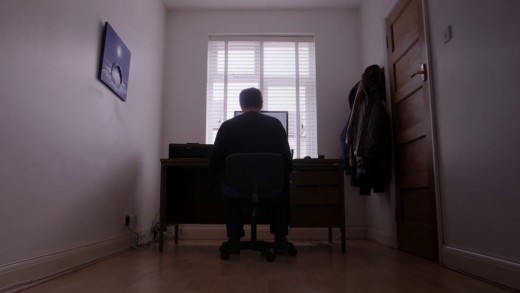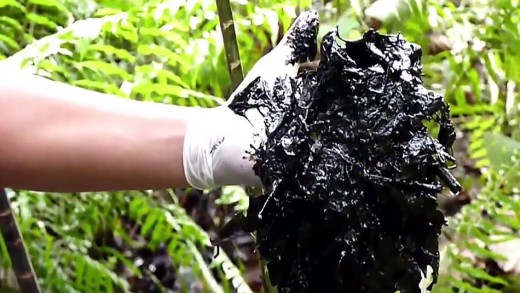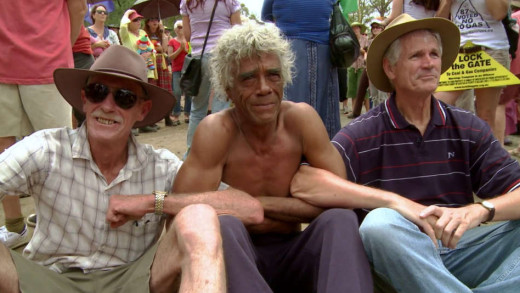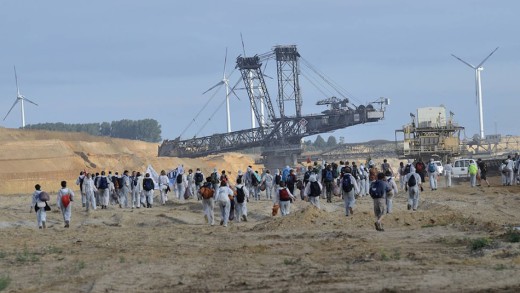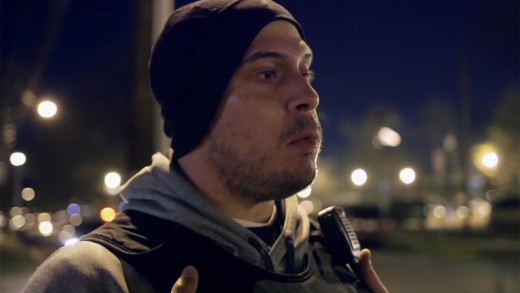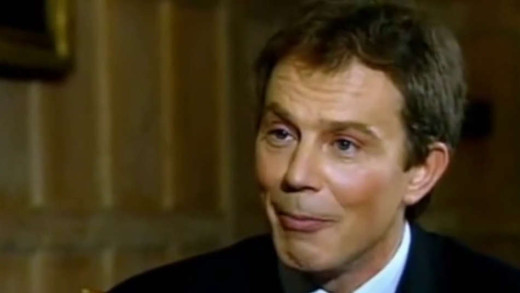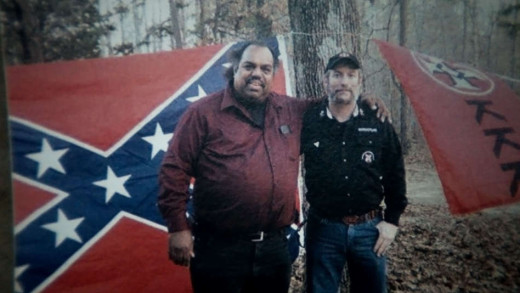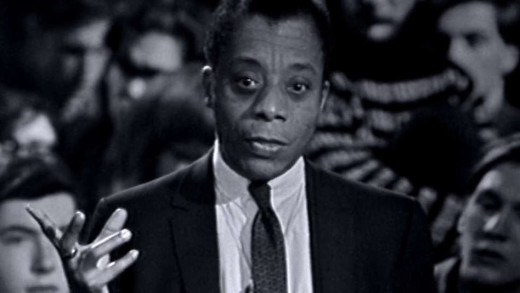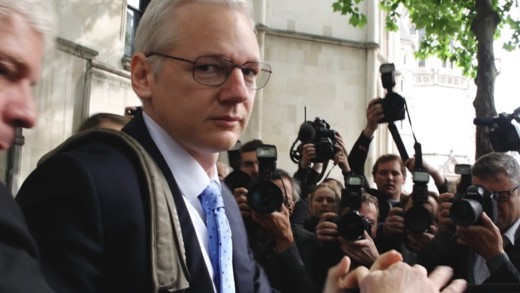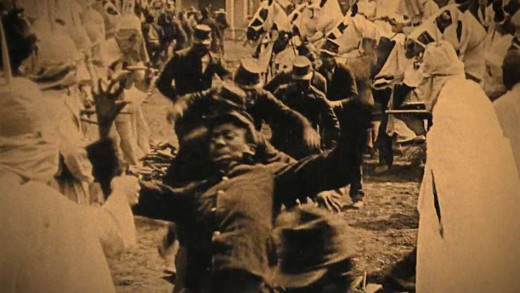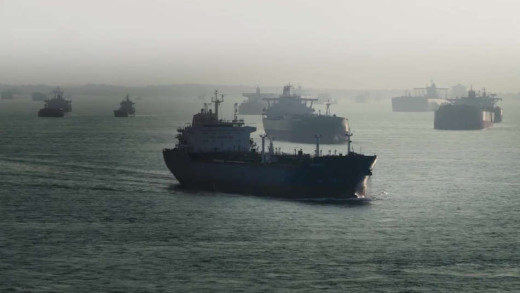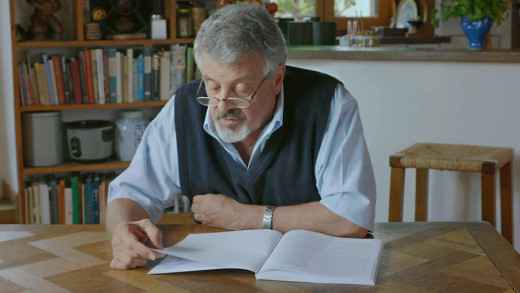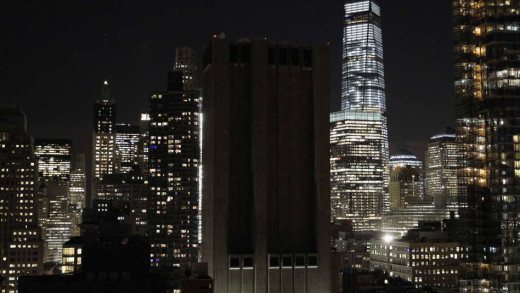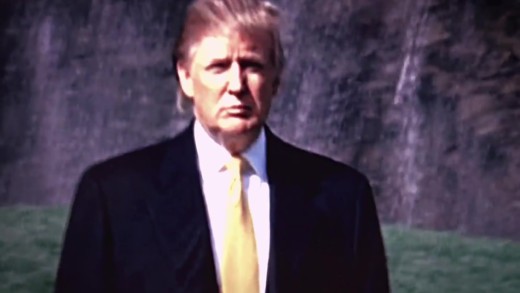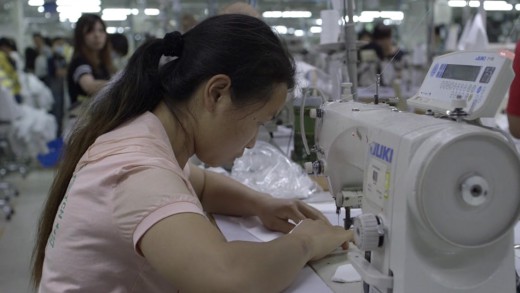HyperNormalisation wades through the culmination of forces that have driven this culture into mass uncertainty, confusion, spectacle and simulation. Where events keep happening that seem crazy, inexplicable and out of control—from Donald Trump to Brexit, to the War in Syria, mass immigration, extreme disparity in wealth, and increasing bomb attacks in the West—this film shows a basis to not only why these chaotic events are happening, but also why we, as well as those in power, may not understand them. We have retreated into a simplified, and often completely fake version of the world. And because it is reflected all around us, ubiquitous, we accept it as normal. This epic narrative of how we got here spans over 40 years, with an extraordinary cast of characters—the Assad dynasty, Donald Trump, Henry Kissinger, Patti Smith, early performance artists in New York, President Putin, Japanese gangsters, suicide bombers, Colonel Gaddafi and the Internet. HyperNormalisation weaves these historical narratives back together to show how today's fake and hollow world was created and is sustained. This shows that a new kind of resistance must be imagined and actioned, as well as an unprecedented reawakening in a time where it matters like never before.
How to Let Go of the World and Love All the Things Climate Can't Change travels the globe, from New York City to the Marshall Islands and China, to meet with people who are committed to reversing the tide of global warming. The film examines the intricately woven forces that threaten the stability of the climate and the lives of the world's inhabitants.
National Bird: Drone Wars is the story of the United States' secret program for drone strikes, conducted all around the world, told through three military whistle-blowers plagued by guilt over participating in the killing of faceless people in foreign countries. They decide to speak out publicly, despite the possible consequences. Their stories take dramatic turns, leading one of the protagonists to Afghanistan where she learns about a horrendous incident, but her journey also provides for peace and redemption. National Bird provides an insight into the United States' secret drone program through the eyes of participants, veterans, and survivors, connecting their stories to images.
The premise of The Age of Loneliness is of how our communities and indeed lives have been completely subsumed by capitalism, leaving us alone in tiny units, solitary. Screen culture and technology is often blamed, but this is more an extension of a larger problem. The Age of Loneliness is exacerbated by this culture making us feel like we have no purpose. How many of us know our neighbours? How many of us even know the land where we live? How has this been destroyed, usurped? What of the nuclear family? With single parents in numbers like never before and families spanning across the globe, all of this poses much larger questions about paternity and the dominant model of relationships. Consumerism and commodification also plays a central role—make note of the screens, computers, TVs and dating websites in the life of the lonely. What's the common thread here? The Age of Loneliness is a film that spans generations, and can function as a call for all of us to reconnect with each other and the places we live for real. To turn away from the spectacle and instead build a better world, with purpose, meaning, friends and real community.
Adrift is a short film that explores the phenomenon of space junk, where human-made objects launched into space and are now defunct orbit the Earth literally as garbage. The film makes visible some of the immediate impacts and dangers of the technological escalation of this culture, where old satellites, spent rocket stages, and other items orbit the Earth, only to collide with one another at high velocities, generating smaller fragments that collide with other items, and so on. The end point is a cascading complex of junk that engulfs the entire space around the Earth. Adrift aims to make this phenomenon visible, putting a big question mark against the claims made by many futurists and technologists that future space colonisation would even be possible, if only it were a tenable or sensible idea in the first place...
The oil industry giant Chevron began operating in Ecuador's Amazon rainforest in 1964, and by the time the corporation fled the area in 1992, their toxic footprint had brought about 1,700 times more damage than the infamous Exxon Valdez oil spill in the United States in 1989. Chevron vs. The Amazon visits the scene of this epic and enduring crime, to uncover the acts that have killed the riches of the world's tropical paradise. The Amazon is home to hundreds of thousands of unique species of plants, animals, insects, landscapes, as well as an equally diverse human population—all under severe and continued stress and threat. Chevron dumped 17 billion gallons of crude oil and 19 billions gallons of contaminated waste water into the Amazon. Prior to fleeing, they attempted to hide this by covering the areas with dirt or setting the toxic dumps on fire. This film shows the totality of these crimes, and how the land and its people have suffered from devastating impacts over the ensuing decades, as the first step to holding corporate criminals to account, for justice and the survival of the Amazon and its peoples.
The Bentley Effect recounts the story of citizens throughout the Northern Rivers shire of Australia protesting against coal-seam gas extraction. When the community first learns of the news, a critical mass of people from all walks of life--farmers, landowners, mums, dads, activists, and scientists--come together to rally against the invasion. But despite enormous public opposition, the gas industry and the State Government are determined to see their plan through. So the community changes tact and resorts to differing methods of civil disobedience and non-violent protest. This culminates in a music festival of sorts in Bentley, New South Wales, which brings together the community and also spurs them on to initiating political action.
Audrie & Daisy is a documentary about the trend of teenage girls in the United States being sexually assaulted by their male classmates, and having the assaults recorded and shared on social media. It looks at the trend that the legal system tends to systematically minimise and dismiss cases, resulting in victimised girls not receiving justice. Girls often end up getting bullied both in school as well as online for being rape victims, and the pictures and videos are posted online--almost as trophies--by teens that have committed and witnessed these crimes. The online forum for sharing these images and comments has become the new public square of shame for adolescents. Audrie & Daisy aims to shed light on this dark corner of life facing young adults, and serves to form a powerful tool for honest conversation, analysis, and real justice.
Disobedience glances a new phase of civil disobedience movements to stop climate change by profiling some actions that are being taken throughout the world, led by regular people. Civil disobedience and direct action are at the centre of stopping the rich and powerful from destroying the planet—we actually have to stop them. Disobedience shows that profound shifts are required to deal with the climate crisis. The calling on how to act is up to you.
Over the past several years, a seemingly relentless string of killings by police of unarmed black men—Michael Brown in Ferguson, Freddie Gray in Baltimore, Eric Garner in New York—has reignited issues around race, policing and civil rights in the United States that have been languishing unresolved for decades. Recently the issues are critical enough that the Department of Justice has stepped in to mandate reform of several police forces renowned for brutality and institutional abuses of power. In Policing the Police, journalist Jelani Cobb gets up close and personal with police departments and officers alike, to show from the inside the difficulties these institutions now face of fixing a broken relationship with the community after decades of mistrust. Is it even possible with the current police culture? Policing the Police is a powerful case study of these questions, and a light on just how much has to change.
The Killing$ of Tony Blair documents former UK Prime Minister Tony Blair's well-remunerated business interests since leaving government, and his complicity in the thousands of innocent people who have died following his decision to invade Iraq.
This short video explores how the online world has overwhelmingly become the popular outlet for public rage by briefly illustrating some of the many stories of everyday people which have suddenly become public enemy number one under the most misunderstood of circumstances and trivial narratives. With the web acting like a giant echo-chamber, amplifying false stories and feeding on the pent-up aggression of the audience watching the spectacle, The Outrage Machine shows how these systems froth the mob mentality into a hideous mess, as a good example of where the spectacle goes and how its intensity has to keep ratcheting up in order maintain the audience attention, in a culture of dwindling attention spans, distraction and triviality.
The microbeads of plastic contained in cosmetics, shower gels, soaps, toothpastes, and many other products, of course directly end up in rivers and oceans, fish and birds, as well as other creatures of the sea and indeed land. But if that isn't problematic enough, these tiny plastics are only part of the bigger problem of plastic prolifically choking the ocean to death. For all plastics, big or small, break down and fail into smaller plastic particles, having cumulative biological and toxicological effects. This short television report takes a quick look into how marine life is effected by all this, and why we should do something about it before it's too late.
The Porn Factor takes viewers on a journey of discovery, from regional and urban Australia to the centre of the international porn industry in Los Angeles and back. Through candid interviews with young people, pornstars, and other industry professionals, The Porn Factor explores how pornography is shaping young people’s sexual expectations and experiences. Readily available and aggressively marketed online, exposure to hardcore pornography is now mainstream. The classroom or parent talk is now no match for porn--with its endless array of gyrating bodies, offering a quick, easy and anonymous sexual charge. Porn has become the default sexuality educator for young people growing up online. It brings into compelling focus the 21st century challenges faced by parents, schools and others as they seek to equip young people for a sexuality that is safe, respectful and fully consenting.
Daryl Davis is an accomplished musician, a piano player who has played all over the world with legends like Jerry Lee Lewis, Little Richard, and Chuck Berry. He is also an activist, meeting and befriending members of the Ku Klux Klan, many of whom have never met a black person. And when some of these same people decide to leave the Klan, Daryl keeps their robes and hoods--building his collection piece by piece, story by story, person by person. In Accidental Courtesy, Daryl takes the viewer on a journey from the steps of the Lincoln Memorial to Memphis, from Alabama to Ferguson, Missouri, as he recounts the entwined history of black America and popular music. Along the way, he questions several current and former Ku Klux Klan leaders as well as young Black Lives Matter activists who vehemently disagree with his tactics of tacking racism in society.
In 1979, author and activist James Baldwin wrote a letter to his literary agent describing his next project, Remember This House, which was to be a revolutionary, personal account of the lives and assassinations of three of his close friends--Medgar Evers, Malcolm X and Martin Luther King, Jr. But eight years later, Baldwin died, leaving behind 30 completed pages. I Am Not Your Negro is a film of the book that was not finished, offering an incendiary snapshot of James Baldwin's crucial observations on race relations in the United States, with a flood of rich archival footage. The film is a journey into black history that connects the past of the Civil Rights movement to the present of #BlackLivesMatter, questioning black representation in the United States and beyond.
Cornered in the tiny building of the Ecuadorian embassy in the United Kingdom for half a decade, WikiLeaks founder Julian Assange and his team are undeterred, continuing to release troves of important documents, even as the personal legal jeopardy he faces threatens to undermine the very organisation he leads and fracture the movement it inspired. Filmmaker Laura Poitras finds herself caught between the motives and contradictions of Assange and his inner circle. Filmed over six years, Risk is a complex and volatile character study of the forces that crescendo with a high-stakes election year in the United States and its controversial aftermath. In a world order where a single keystroke can alter history, Risk is a nuanced and curious portrait of power, betrayal, truth, and sacrifice. How much of your own life are you willing to risk?
13th explores the intersection of race, justice, and mass incarceration in the United States, as titled after the Thirteenth Amendment to the United States Constitution, adopted in 1865, which purported to abolish slavery throughout the United States and end involuntary servitude except as a punishment for conviction of a crime. The film contends that slavery has been perpetuated since the end of the American Civil War through criminalising behaviour and enabling police to arrest poor enslaved people and force them to work for the state under convict leasing; suppression of African Americans by disenfranchisement, lynchings and Jim Crow; politicians declaring a war on drugs that weighs more heavily on minority communities and, by the late 20th century, mass incarceration of people of colour in the United States. 13th examines the prison-industrial complex and the emerging detention-industrial complex, discussing how much money is being made by corporations from mass incarcerations.
Every day, billions of people are unwittingly taking part in what is the largest most comprehensive psychological experiment ever conducted. The old marketing and advertising world using billboards, advertisements and TV commercials to persuade us, has been comprehensively augmented by an entirely new field of "user experience architects" and "online persuasion agents." These forces are given tremendous power from the proliferation of digital technologies. So how do these powerful forces ensure that we fill our online shopping carts to the brim, or stay on websites as long as possible? Or vote for a particular candidate? What Makes You Click examines how these prolific entities collectively and individually use, shape, and manipulate our experiences via an online world, not just when it comes to buying things, but also with regards to our free time and political perspectives. The manipulation has become so good that these powerful controllers, former Google employees among them, are themselves arguing for the introduction of an ethical code. What does it mean when the grand conductors of these huge experiments themselves are asking for their power, influence and possibilities to be restricted?
90% of the consumer products are manufactured overseas, delivered by ship. Likewise with individual supplies, assembly parts, and even transportation oil itself. The shipping industry is the core of the globalised economy. Yet this industry remains largely obscure and unquestioned. As modern ships are too large to fit in traditional city harbours, they've moved out of the public eye, behind extensive barriers and security check points. Freightened: The Real Price of Shipping aims to open up this hidden world. What pulls the strings in this multi-billion dollar global business? To what extent does it control policy makers? How does it affect the environment above and below the water-line? And what's life like for modern seafarers? Through journeys over many oceans, Freightened is an investigation the hidden machinations of globalised shipping, revealing its ubiquitousness but fragility, consequences and future.
All Governments Lie: Truth, Deception, and the Legacy of I.F. Stone looks at an array of award-winning filmmakers who subscribed to I. F. Stone's newsletter in their teens, revealing a new wave of independent, investigative, adversarial journalists following in Stone's footsteps. Reflecting on his work during the era of McCarthyism, a chorus of independent journalists also reflect on today where giant media conglomerates are reluctant to investigate or criticise government policies--particularly on defence, security and intelligence issues. With government deception rampant, and intrusion of state surveillance into our private lives never before more egregious, independent journalists tell their story of being inspired by the iconoclastic Stone, whose fearless, independent reporting from 1953 to 1971 filled a tiny 4-page newsletter. Stone is little known today, but All Governments Lie reveals the profound influence he had on contemporary independent journalism.
American Anarchist is the story of The Anarchist Cookbook, and the role it's played in the life of its author, William Powell. Written as a teenager--and first published at the apex of the counterculture of the 1970s to protest the United States' involvement in the Vietnam War--part manifesto, part bomb-making manual, The Anarchist Cookbook went on to sell over 2 million copies and has been associated with decades of anti-government attacks, abortion clinic bombings, school shootings, and domestic terrorism. Powell, now 65 and haunted by his creation, confronts his work and its consequences. We see how in 1976, 5 years after writing the book, he left the United States, leading an itinerant life and later becoming a teacher for emotionally disturbed children, the same sorts of kids that carried the Columbine High School massacre, the Colorado high school shooting and the 2012 Aurora shooting. American Anarchist is a cautionary tale of youthful rebellion, unforeseen consequences, and a universal story of an older person wrestling with their younger past.
Project X is a short film taking viewers on an undercover journey based on formerly top-secret documents that show a partnership between the National Security Agency and telecommunications corporations such as AT&T and Verizon for mass surveillance and bulk data collection of voice and data. The documents reveal TITANPOINTE, the codename for a large windowless sky scraper in New York, where AT&T and other corporations house vast Internet switching equipment and data centres. The facility is also tied to a nearby FBI building, and its rooftop equipment to the SKIDROWE satellite surveillance system. These findings were possible because of documents released to the public by Edward Snowden and other brave whistleblowers.
The Illusionists examines how global advertising firms, mass media, and the beauty, fashion, and cosmetic-surgery industries have together colonised the way people all around the world define beauty and see themselves. Taking us from Harvard to the halls of the Louvre, from a cosmetic surgeon's office in Beirut to the heart of Tokyo's Electric Town, The Illusionists shows how these industries saturate our lives with narrow, Westernised, consumer-driven images of so-called beauty that show little to no respect for biological realities or cultural differences. Featuring voices from prominent sociologists, magazine editors, scientists, artists, and activists, The Illusionists documents a truly global phenomenon, with hegemonic results.
In 2013, seventeen-year-old Rehtaeh Parsons took her own life. She had been gang-raped a year and a half earlier by her classmates and labeled a "slut" as a result. Despite transferring schools many times, she could not escape constant online harassment and in-person bullying. But Rehtaeh's story is horribly not the only one like this to make headlines in recent years. Why is the sexual shaming of girls and women, especially sexual assault victims, still so prevalent throughout this culture? UnSlut tackles this question through a series of conversations with those who have experienced sexual shaming and how it manifests, while also offering immediate and long-term goals for personal and institutional change.
The Empathy Gap investigates how dominant culture bombards young men with sexist and misogynistic messages and argues that these messages not only devalue women but also undercut men's innate capacity for caring and empathy. The film looks closely at the ways these messages short-circuit men's ability to empathize with women, respect them as equals, and take feminism seriously, drawing parallels between sexism and racism, spelling out how each is rooted in cultural norms that discourage empathy, and shows how men who break with these norms live happier and healthier lives.
Arresting Power documents the history of conflict between the Portland police and members of the community throughout the past fifty years in the United States. The film portrays personal stories of victims of police misconduct, the families of people who were killed by police, and members of community activist groups working for reform and abolition. Using experimental filming techniques, meditative footage, and official police radio audio feeds, Arresting Power pieces together a space for understanding a lens on the impacts of police violence and community attitudes.
The True Cost is a global investigation into the clothes we wear, the people who make them, and the impact the industry is having on the world. The price of clothing has been decreasing for decades, while the human and environmental costs have grown catastrophically. The True Cost pulls back the curtain on the untold story and asks us to consider, who really pays the price for our clothing?

